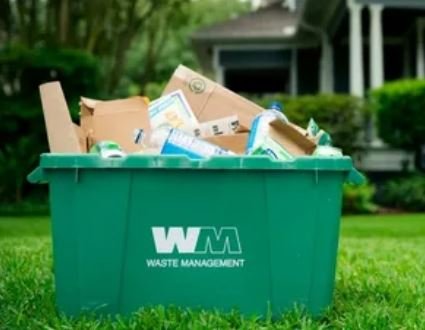Businesses are mostly responsible for the astounding amount of waste that is produced worldwide each year. Our consumer-driven society’s byproducts, which range from outdated electronics to discarded packaging, frequently wind up in landfills, the ocean, as well as other areas where their effects can harm ecosystems for years to come. Commercial trash may have a major negative influence on the natural world, but companies can take action.
Businesses of all shapes and sizes can have a big impact. Let’s examine the potential effects of commercial waste and the actions such as getting in touch with experts at Manchester Skip Hire that businesses can undertake to create an environmentally friendly future.
What Effects Does Business Waste Have on The Environment?
The most popular places for commercial garbage to end up are landfills. Landfills take up more space when they expand, and they also pollute the soil while rendering it less fertile. Decomposing garbage releases methane, consequently many species are in danger of going extinct as a result of habitat pollution.
Local ecosystems are immediately impacted by the disposal of garbage byproducts such as landfills, contaminated streams, as well as deforested areas. Furthermore, ongoing raw material mining may deplete the planet’s limited resources, leading to an unpredictable future. Additionally, waste can contaminate water by getting into rivers and oceans. Water sources may become unfit for human consumption as a result, while aquatic life is harmed.
The Financial Effects of Commercial Waste on Companies
For organisations, trash management may be an expensive undertaking. Over time, the costs of collecting, disposing of, and recycling waste may grow and affect a business’s profitability. Due to regular garbage collection services, landfill taxes, and potential fines for non-compliance with waste disposal legislation, businesses that fail to handle their waste effectively frequently incur higher operating costs. By lowering material costs and increasing resource efficiency, reducing waste output can result in cost savings.
By cutting disposal costs and dependence on new materials, employing sustainable handling waste techniques like recycling and material reuse may also have an economic benefit. Additionally, a company’s reputation may prove improved by taking an environmentally conscious method for garbage management, which will build consumer loyalty and trust. Businesses which emphasise waste reduction & environmentally friendly procedures might obtain an edge over rivals in a time when customers place a high value on sustainability.
Challenges with Regulation and Compliance in Waste Management
Businesses must follow different waste management laws that differ based on the industry and area. To make sure businesses follow environmentally friendly procedures, governments as well as environmental organisations impose strict waste disposal regulations. Noncompliance with these rules may result from serious fines, legal action, and reputational harm to a business. Following recycling laws, hazardous waste disposal regulations, & waste reduction goals are all part of good waste management practices.
Due to ineffective waste management procedures or a lack of understanding, a lot of companies have trouble complying with regulations. Businesses can promote green practices and comply with regulations by investing in trash audits, employee training, as well as alliances with approved waste disposal companies.
Ecological Ways to Cut Down on Commercial Waste
Implementation of sustainable waste management practices provides the solution for minimizing harmful business waste impact on organizations and environmental systems. Reducing paper waste in businesses becomes possible through decreased packaging amounts and simplified supply chain operations while encouraging digital record keeping. Composting and recycling demonstrate high effectiveness in garbage diversion from landfills. Establishing recycling initiatives on company property enables businesses to ensure proper separation and disposal of recyclable items.
The process of creating valuable topsoil through composting biological waste stops materials from building up in landfills. New technological solutions for waste management such as waste-to-energy conversion and biodegradable packaging systems have been revealed as effective approaches to minimize environmental damage. Companies should consider establishing partnerships with sustainable-oriented groups to enhance both their waste management approaches and support circular economic systems.
Corporate Social Responsibility’s Function in Waste Management
Initiatives for corporate social responsibility (CSR) are crucial in advancing environmentally friendly waste management techniques. Companies show their dedication to social responsibility & environmental care by including waste reduction techniques in their CSR policy. The company, especially the community, may profit from waste reduction initiatives, partnerships with environmentally conscious vendors, and training staff on environmentally friendly procedures.
Additionally, waste management-related CSR initiatives can raise staff involvement and morale. Workers have a greater likelihood to be proud to work for an organisation which prioritises sustainability and actively reduces its impact on the environment. It can, therefore, improve workplace culture and help the organisation succeed as a whole.
Conclusion
Businesses & the environment are greatly impacted by corporate waste, which affects environmentally friendly sustainability, operational costs, & legislative compliance. Companies can lower expenses, improve their reputation, and lessen their ecological impact by implementing ethical commercial Waste procedures. As the need for sustainability grows, companies should take proactive steps regarding waste reduction & recycling to ensure long-term success whilst safeguarding the planet for future generations.












